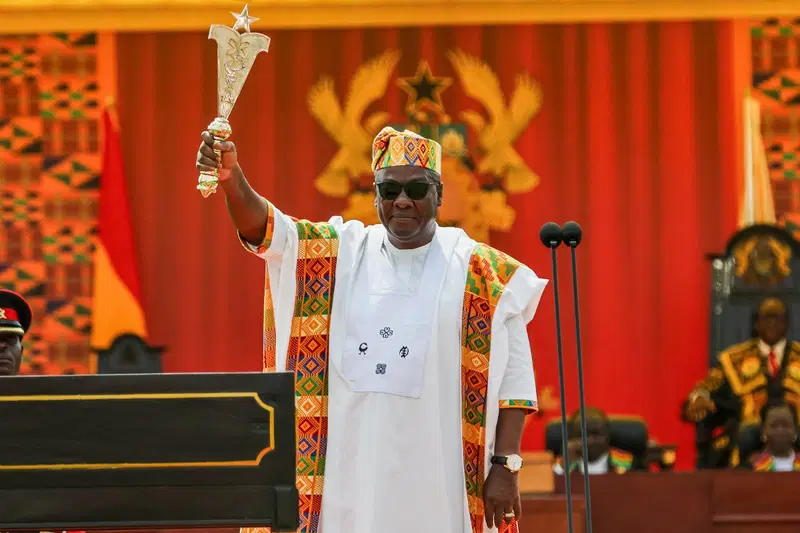Ghana’s new president John Mahama secured a huge comeback to the top job eight years after leaving power, tapping into economic frustrations in the gold-producing West African country.
Mahama, who had tried twice before to win back the presidency, was sworn in on Tuesday alongside Jane Naana Opoku-Agyemang, the first woman to become vice president in Ghana.
His win in December 9 elections made him the first president in three decades since the 1992 return to multi-party democracy in Ghana to reclaim the presidency after being voted out.
Mahama, 66, of the National Democratic Congress (NDC) party, beat Vice President Mahamudu Bawumia of the ruling New Patriotic Party (NPP).
The economy became a major election issue after Ghana defaulted on its debt and entered into a $3-billion deal with the International Monetary Fund (IMF).
Mahama, who served as president from 2012 to 2017, promised to “reset” Ghana, renegotiate parts of the IMF deal and introduce a “24-hour” economy to create jobs, a major concern for many younger voters.
– Writer and music fan –
A writer and devotee of Afrobeat music, Mahama wrote in his memoir “My First Coup d’Etat — And Other True Stories from the Lost Decades of Africa” that he was changed by his boyhood experiences during a 1966 military coup.
He was born in northern Ghana as a child of privilege, his house being the only one in the village with a diesel generator.
His father, who served as a junior government minister, was briefly detained and interrogated by the 1966 coup leaders but later released unharmed.
Mahama was also a member of parliament and chairman of the West Africa Caucus at the Pan-African Parliament in Pretoria
On corruption, Mahama has said he will create a new office tasked with scrutinising government procurement above a $5-million threshold.
He says unchecked procurement processes are a major source of corruption.
The new president has voiced support for an anti-LGBTQ bill passed by Ghana’s parliament in February last year but which is yet to be signed into law and has sparked international criticism.
“People are looking for change and they trust Mahama to steer the country in a better direction,” Mustapha Gbande, a spokesman for Mahama’s campaign, said.
But Mahama’s first tenure as president was marred by a severe energy crisis that led to persistent power cuts, known locally as “dumsor”, which dented his reputation.
Corruption allegations also plagued his administration, although no charges were formally filed against him.
Mahama’s campaign sought to counter criticism by emphasising his experience in international leadership, including his role in combatting the Ebola crisis as chairman of regional West African bloc, ECOWAS.



